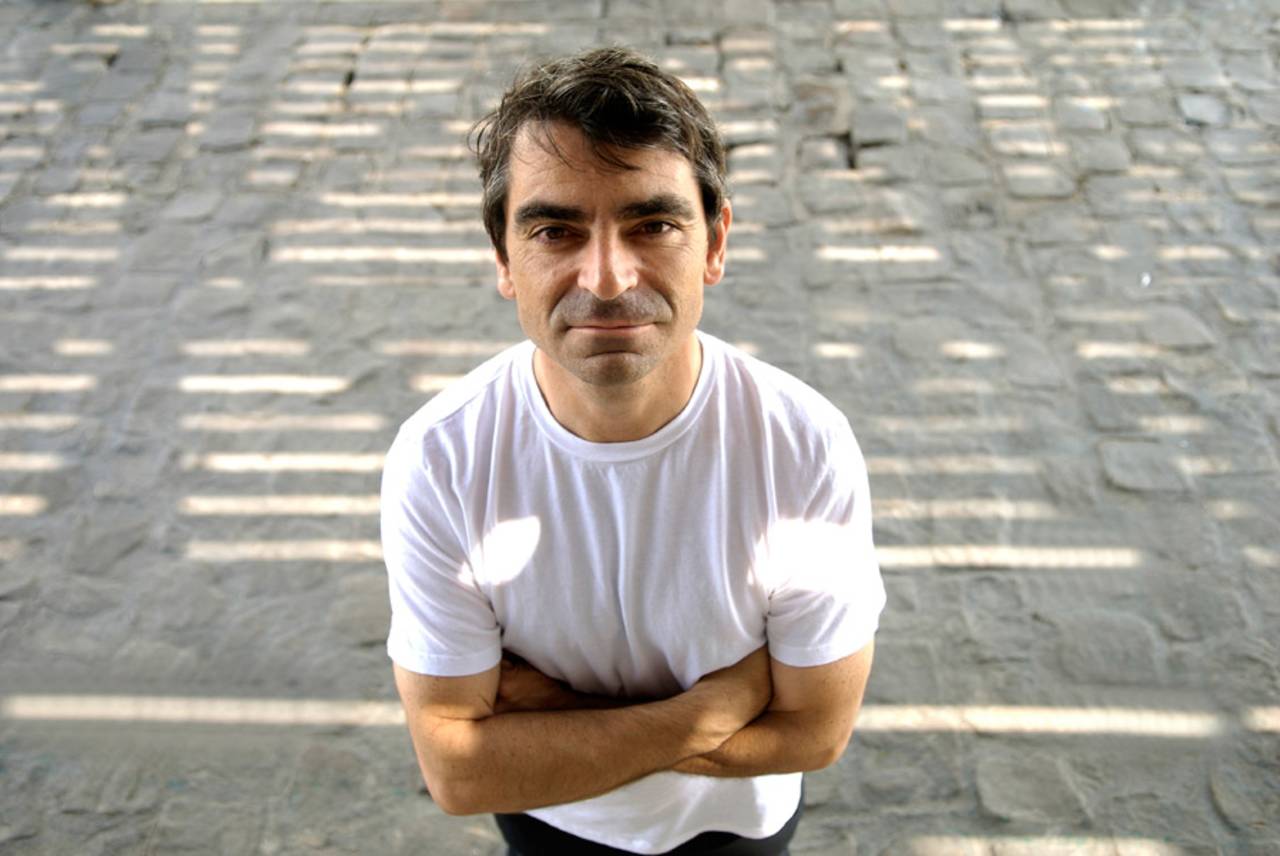Whither the great cricket novel?
Cricket fiction has not really floated my boat. Who needs made-up heroes when the real-life ones are so wonderful?
Samir Chopra
Sep 10, 2013, 4:44 PM

Joseph O'Neill's Netherland might have been considerably less interesting if cricket had played a larger part in it • Getty Images
I read Jonathan Wilson's post on why cricket seemingly does not lend itself to the novel with great interest. As someone who likes to read about cricket, and as someone who has, in these very pages, complained about the lack of a definitive, high-class documentary on cricket, I'd like to offer a few purely speculative thoughts of my own. (Some of them resonate with Jonathan's remarks, but for all that, I hope they will not be found redundant.)
First: a confession. I've only read one "cricket novel": Joseph O'Neill's Netherland. I could not finish the critically acclaimed Chinaman, despite starting it twice. Over the years, I've been recommended many cricket novels, have had some offered to me for review, and have seen many blurbs or advertisements for them. But I feel strangely uncompelled to read them, and do not make the slightest effort to explore this particular literary avenue. (Obviously, I have never bought one, and not a single one features on my Amazon wishlist.) But the reasons for my failure with - or perhaps antipathy towards - the cricket novel tell me something about why others might have had similar experiences, and thus, perhaps, have not prompted great efforts at writing them either.
First, Netherland does not really make cricket its centrepiece; that part is played by New York city, and its place in the displaced central protagonist's life. Cricket is a part of New York city, in interesting and diverse ways, and so it shows up in Hans van den Broek's life in a similarly intriguing way. When I first wrote a brief review of Netherland I considered it a sports novel, a cricket novel. But now I don't. I think if cricket had intruded any more into it, I would have found it a considerably less interesting book. And thus Chinaman. There was too much cricket in it. (Before I get too many flames for my failure to complete it, let me assure you that I have it on my shelves and intend to try again.)
Perhaps the problem is that I write on cricket, I watch it, I talk about it, and so, saturated and satiated, when I approach a novel, I'm seeking a different experience. But that isn't the whole story.
The problem, I think, lies in what "cricket literature" means to me, and how I was exposed to it. From the very beginning cricket was a realm of fantasy, populated by gallant heroes; they were dashing, they did great deeds, they flirted with disaster and success, they were famous, they were glamorous, they were brave, and so on. A match report on a game played well before my time, by these men, in countries I had never seen - and was pessimistic about ever visiting - came as close to a boy's adventure tale as was possible.
Radio commentary from these lands, at strange times of the day and night, confirmed the essentially fantastic nature of this relationship. Who needed fiction with made-up heroes when these tales were at hand? And indeed, unsurprisingly, when I glanced at a cricket novel or two, the action in them seemed like pale shadows of that which was available in "real life"; the plot lines were not as compelling as those of a great Test; my emotional involvement seemed destined to be shallow and pallid compared to my agonised immersion in the fortunes of my flesh-and-blood idols. (Incidentally, as a youngster, I was much enthused by military history; unsurprisingly, even though some great war novels have been written, I do not find them as interesting as really good historical accounts.)
Literature develops our imaginative capacities; it gives us insights into human nature, its weaknesses and strengths; it may instruct us in the moral dimension; it lets us lurk in the human heart and mind; it develops, in its most optimistic conceptions, sympathy for the human condition and empathy for others. Cricket literature, with its match reports, its player biographies, its social histories, its clash of personalities, its central drama of one man against 11, provides a great deal of these. I suspect the same might be true of other great sports as well: are there great soccer novels, for instance?
Wilson and I are in agreement, then, that a good sports novel works best when the sport is a backdrop, not the centrepiece, and that the scope, breadth, depth and intensity of match reports and other associated writing on the game leave very little for a putative novelist to explore when it comes to writing his intended work.
The right attitude toward the lack of a cricket novel, I think, should not be dismay but rather gratitude that we have been blessed with as rich a store of writing on this great game as we currently possess.
Samir Chopra lives in Brooklyn and teaches Philosophy at the City University of New York. He tweets here